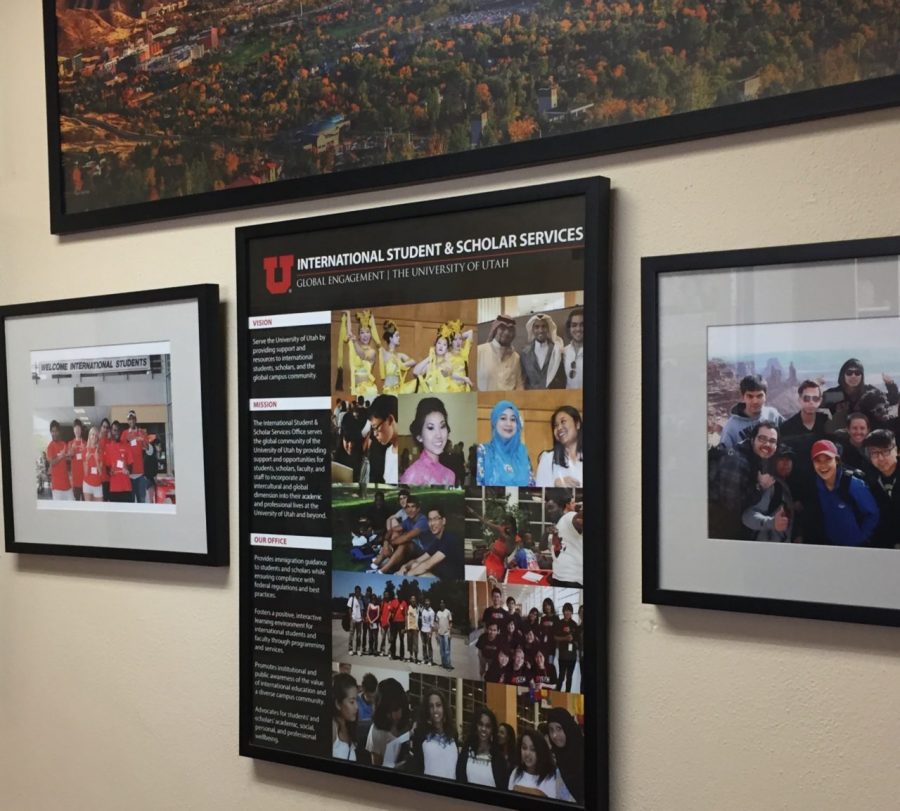Omar Bin Taleb, an international student at the University of Utah, canceled travel plans to visit his family who lives in Yemen — one of the seven nations listed in an executive order that bans travel and immigration from several Muslim-majority countries.
“If I am not able to go back, it would be devastating for me,” Taleb said.
Despite the “extreme vetting” executive order signed Friday by President Trump, the University of Utah’s global engagement office said it will not release the immigration status of any students.
The seven countries listed in the 90-day travel ban are Iran, Iraq, Libya, Somalia, Syria, Sudan and Yemen.
Taleb’s family lives in Yemen, where he was born — a country besieged by a “forgotten war” and one with 1.5 million malnourished children, reported by UNICEF.
Once every year Taleb returns to visit his family, but this year he may not be able to.
“I don’t know if I would go back in the summer to see my family or not,” Taleb said.
His brother and his wife were also planning to visit him in the U.S. in May, but canceled their visa application this week, according to Taleb.
Confidential safekeeping of international student records is business as usual for the U, according to Chalimar Swain, Director of the International Student and Scholar Services (ISSS) office.
“We do not anticipate this [policy] to change,” Swain said of the U’s protocol to protect student files.
Early last week, the U learned of possible executive orders that could impact international students and began devising a plan to inform and guide those who are affected.
ISSS posted to their website a detailed explanation of the executive order and how it may impact students and faculty who are in the U.S. on a visa. The statement warns students from banned countries to cancel all future travel plans and consult them if emergency travel is necessary.
Faculty of the ISSS office extended their precautions to all students who are from foreign countries, for concern that the travel embargo list will grow.
“Reports indicate that more countries may be added to this list in the future,” the statement said. “We strongly suggest avoiding all non-essential travel at this time, until more information is known.”
The mechanical engineering student, who transferred to the U in 2015, said he worries about being separated from his family and about the inclusiveness of the U.S. — a country he believes trademarked diversity.
“The communication between different groups would be limited as not everyone is included in the ‘diverse community’ anymore,” Taleb said.
Banning certain groups of people “harms human rights as people are not treated with equality,” Taleb added. It’s also clear to Taleb that some Americans will be treated with “certain privilege” in the wake of immigration and travel restrictions.
Swain encourages students to reach out to the Women’s Resource Center, University Counseling Center, Center for Ethnic Student Affairs and her office (ISSS) if the immigration and travel ban situation affects them in any way.
“We know our students and scholars may be feeling afraid, anxious, angry and uncertain about their future,” Swain said in a letter for international students and faculty on Friday, before President Trump officially signed the order. “You can always find support here at ISSS.”
@kttbuda


